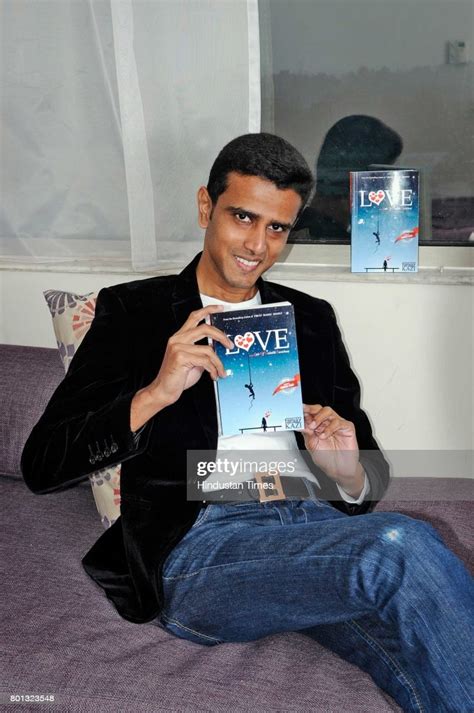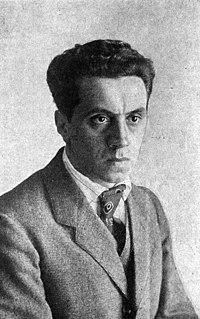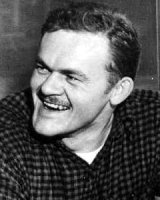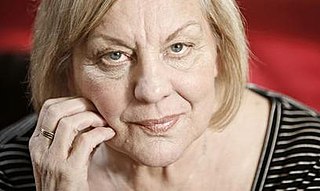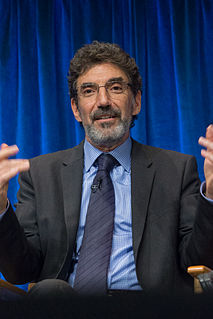A Quote by Stephen King
A child blind from birth doesn't even know he's blind until someone tells him. Even then he has only the most academic idea of what blindness is; only the formerly sighted have a real grip on the thing. Ben Hanscom had no sense of being lonely because he had never been anything but. If the condition had been new, or more localized, he might have understood, but loneliness both encompassed his life and overreached it.
Related Quotes
He was about to go home, about to return to the place where he had had a family. It was in Godric’s Hollow that, but for Voldemort, he would have grown up and spent every school holiday. He could have invited friends to his house. . . . He might even have had brothers and sisters. . . . It would have been his mother who had made his seventeenth birthday cake. The life he had lost had hardly ever seemed so real to him as at this moment, when he knew he was about to see the place where it had been taken from him.
His youth seemed never so vanished as now in the contrast between the utter loneliness of this visit and that riotous, joyful party of four years before. Things that had been the merest commonplaces of his life then, deep sleep, the sense of beauty around him, all desire, had flown away and the gaps they left were filled only with the great listlessness of his disillusion.
He ran as he'd never run before, with neither hope nor despair. He ran because the world was divided into opposites and his side had already been chosen for him, his only choice being whether or not to play his part with heart and courage. He ran because fate had placed him in a position of responsibility and he had accepted the burden. He ran because his self-respect required it. He ran because he loved his friends and this was the only thing he could do to end the madness that was killing and maiming them.
Around the time of the Terran Caesar Augustus, a Martian artist had been composing a work of art. It could have been called a poem, a musical opus, or a philosophical treatise; it was a series of emotions arranged in tragic, logical necessity. Since it could be experienced by a human only in the sense in which a man blind from birth might have a sunset explained to him, it does not matter which category it be assigned.
Backlock, a poet blind from his birth, could describe visual objects with accuracy; Professor Sanderson, who was also blind, gave excellent lectures on color, and taught others the theory of ideas which they had and he had not. In the social sphere these gifted ones are mostly women; they can watch a world which they never saw, and estimate forces of which they have only heard. We call it intuition.
I had to get over [him]. For months now, a stone had been sitting on my heart. I'd shed a lot of tears over [him], lost a lot of sleep, eaten a lot of cake batter. Somehow, I had to move on. [Life] would be hell if I didn't shake loose from the grip he had on my heart. I most definitely didn't want to keep feeling this way, alone in a love affair meant for two. Even if he'd felt like The One. Even if I'd always thought we'd end up together. Even if he still had a choke chain on my heart.
I think with being blind the one thing you would have going is that you could still feel things, see your way around so to speak. And if you had had the experience of seeing at one time in your life, then you would know what it was like and be able to function. I've said this before, I think I could really photograph blind if I had to.
Up until then it had only been himself. Up to then it had been a private wrestle between him and himself. Nobody else much entered into it. After the people came into it he was, of course, a different man. Everything had changed then and he was no longer the virgin, with the virgin's right to insist upon platonic love. Life, in time, takes every maidenhead, even if it has to dry it up; it does not matter how the owner wants to keep it. Up to then he had been the young idealist. But he could not stay there. Not after the other people entered into it.
It would perhaps not be amiss to point out that he had always tried to be a good dog. He had tried to do all the things his MAN and his WOMAN, and most of all his BOY, had asked or expected of him. He would have died for them, if that had been required. He had never wanted to kill anybody. He had been struck by something, possibly destiny, or fate, or only a degenerative nerve disease called rabies. Free will was not a factor.
At that moment a very good thing was happening to her. Four good things had happened to her, in fact, since she came to Misselthwaite Manor. She had felt as if she had understood a robin and that he had understood her; she had run in the wind until her blood had grown warm; she had been healthily hungry for the first time in her life; and she had found out what it was to be sorry for someone.
I'm thinking of writing a children's story about a leaf on a tree who arrogantly insists he's a self-made, independent leaf. Then one day a fierce wind blows him off his branch and to the ground below. As his life slowly ebbs away, he looks up at the magnificent old tree that had been his home and realizes that he had never been on his own. His entire life he had been part of something bigger and more beautiful than anything he could have imagined. In a blinding flash, he awakens from the delusion of self. Then an arrogant, self-centered kid rakes him up and bags him.

